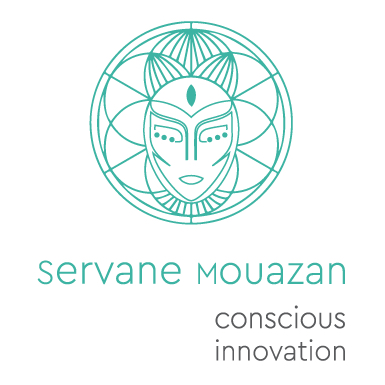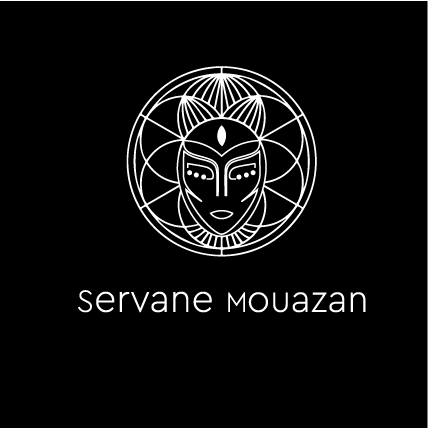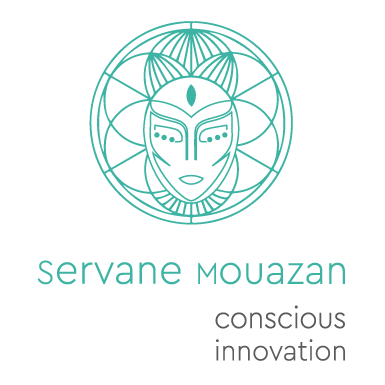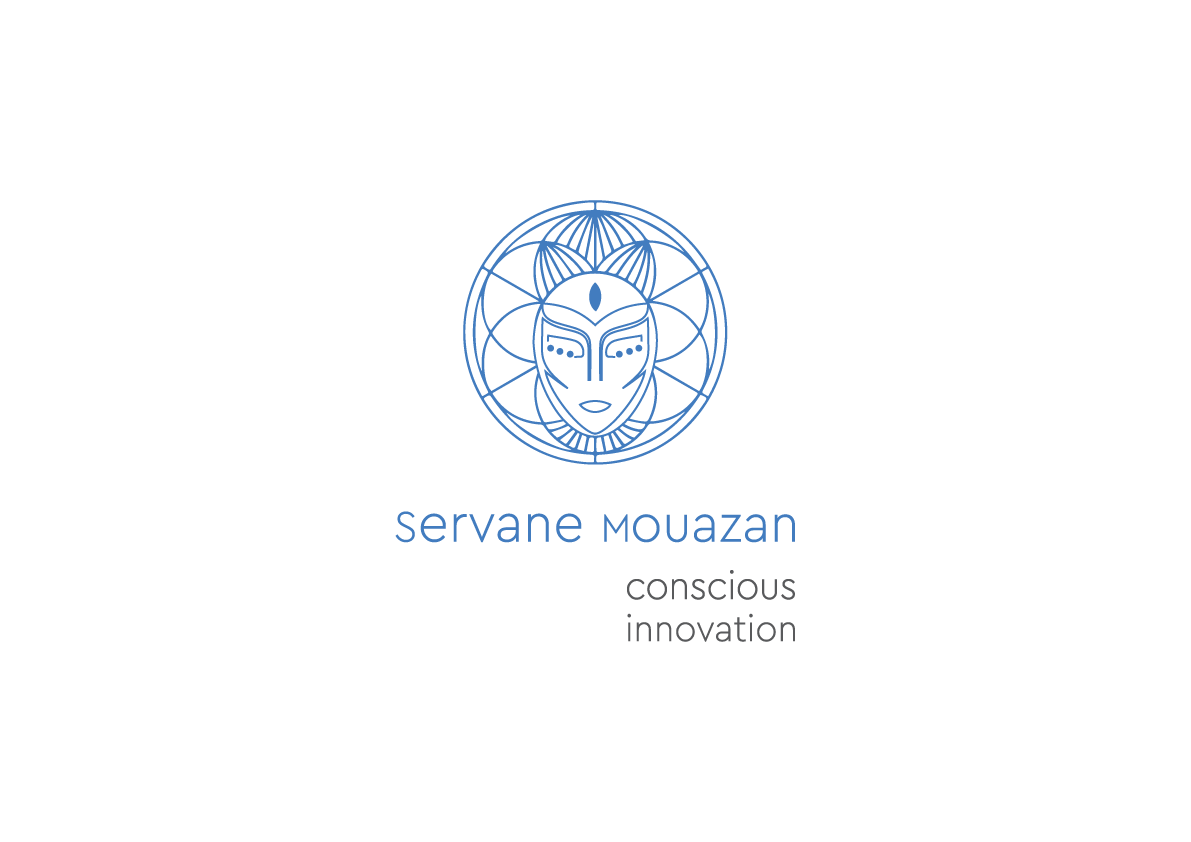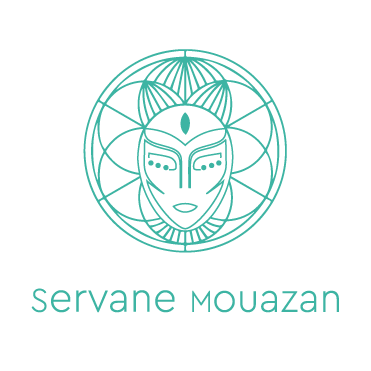Risks And Blindspots Within The VC Landscape: With Zoe Peden
In this episode of Be & Think in the House of Trust, I am speaking with Zoe Peden.
Zoe has a background in publishing, social entrepreneurship and health tech.
I love that back in 2010, she co-founded an assistive technology company that’s helped over 100,000 people lead more independent lives.
Social mobility is also a topic she holds dear.
Zoe comes from a working-class family and with 20 years of experience in operating technology companies and making board decisions, she is now a Partner at Ananda Impact Ventures.
Zoe shares her hopeful insights on what needs to change within Venture Capitalism, and the sprouting seeds of change.
Highlights from this episode:
- (06:22) Where are the blindspots in VC?
- (10:30) Be proud of your roots
- (12:55) Engaging the quiet revolution
- (14:27) The one question to a VC
- (16:49) A natural optimist
- (19:46) Finance is relying on short-term bets. Things need to change.
Useful Link
Connect with Zoe on Linkedin
{{footer}}
Transcript
Epsiode 12
Servane: [00:00:00] Welcome to the House of Trust. My name is Servane Mouazan from Conscious Innovation, and every week I'm sharing a moment with an inspiring leader who loves to invest in social change. Together. We take the time to be and think beyond the technical skills and competencies that you need to do your job as an investor.
Servane: And we ask ourselves, well, what helps us trust and collaborate effect? What makes this change or definition of risk and what are the assumptions that are stopping us from delivering a much bigger impact? And if the same kinda people stick around the decision-making and the check-writing table, what quiet revolution?
Servane: Does need to happen to make more space around this table for people with more lived experience of the issues we're trying to solve.[00:01:00]
Servane: I'm particularly interested in my guest today. She's called Zoe Peden. I've known Zoe for a number of years, and I wanted to bring you Zoe around this table in the House of Trust. First, because you have a warm presence and a great sense of humor. I just, needless to say, we almost crashed our computers before this session.
Servane: Um, but also because you've been a social entrepreneur and you know every c you are an influencer and a movement builder. So Zoe, welcome. Well, thank you. I've been called an influencer before. Oh yeah. I'll just own it. Okay. , there's a self touch of influencing touch in you that I want to hear more of, and so I wonder what are the key highlights of your journey? To becoming a VC and you know, how did you land in there?
Zoe Where should I start? Well, I wanted to be an investment banker. I couldn't get in, I just didn't pass any of the tests, the psychometric tests or anything like [00:02:00] that. So I was quite crestfallen. And then I managed to squeeze a job when I couldn't even use a computer in publishing, in academic publish.
Zoe And that was the first sector to digitize. So academic and S T M, science, technical and Medical Publishing were the first ones to put everything online. So I got involved with doing that and I really enjoyed it. I realized I really loved computers. Uh, cause I've never had one before. This was the late nineties.
Zoe: Everyone didn't have one. Yeah. It's only the people with lots of money could have them, you know, have their own computer at university. And I, yeah, I took a loan. Book my own computer and started building websites cuz I enjoyed the internet so much. It was almost like in the eighties. You always used to have those, um, encyclopedia Britannica, you know, the, the salesman at the door saying, do you have all this?
Zoe: And I remember at school they used to say, now use your encyclopedia. Your homework today used to look up this. We never had them. We couldn't afford to buy them. [00:03:00] I'd have to go around to another neighbor's, you know, nearly everybody had this set of, you know, encyclopedia Britannica, but we didn't have it.
Zoe So just to look up what this word meant, and then I could do the homework. But for me, going on the internet was like, wow, you could find anything. It was like a massive library. And I was like, oh yeah, this is it for me. And I just absolutely loved. And I decided this was what I wanted to be more involved in.
Zoe: the.com bubble burst not long after I started working. So my attempts to move into startups, uh, didn't get there because they ran out of money just as I was trying to, to get into them and get my first job. So I stayed in publishing and digitized lots of content, create new products for lots of people, different publishers around the world.
Zoe And then after take a some timeout, backpacking and realizing that. I wanted to work somewhere that wasn't owned by private equity people that just shoved people out on the basis of, um, the [00:04:00] share price. And it was very cold in all the, the publishing companies. I wanted to work somewhere that cared about the people.
Zoe: So I joined a charity, and this charity had this language program of, um, sign language and symbols, and it helped people with very severe learning difficulties to communicate. And everything that they had was in book format or v h s. So nothing was digitized. So of course that's me. I was the person that digitizes things.
Zoe: But the, the charity didn't have the risk appetite to convert what they had into what was very new then apps. So I was part of the first app wave in the, the late two thousands. And, um, I left to create my. Company in Insane Logic with a product called My Choice Pad. And that was a digitization of that charities language program.
Zoe: And that was the start of my entrepreneurship journey where I met you through Unltd, I think it was, you were involved with Unltd, you were [00:05:00] connected with the work you were doing, um, the foundation for Social Entrepreneurs. And then after years of doing that, one of my investors was Ananda Impact Venture.
Zoe: And they asked me to join them first as a bench partner, so helping with scouting, sitting on some of the portfolio boards until I, I'd worked out after a couple of years of working for them that this. Might be something for me and they'd worked out that I might be something for them. So, uh, I moved to two days a week, both tippy toeing in the water, each of those waters, whether we could work together.
Zoe: And that, that increased now to, yeah, like very full-time. So like obsessive, just like it was when I was, uh, building my own. So the full cycle from building product through to entrepreneurship and then through to, you know, investing in entrepreneurs and product.
Servane So full cycle, that's beautiful. So when I listen to your stories [00:06:00] often, notice how you gently.
Servane: Point to the blind spots in the landscape. Sometimes you, you share this, I've noticed this, I've noticed that that's not right. Or what about this? And it's just to ask a very just candid question. Why, why is that happening? Why aren't they taking risks? Why are they not inviting these people around the table?
Servane: And I wonder what kind of blind spots are you noticing now in the VC L.
Zoe Hmm, they're getting a bit better. There's certainly more diversity, um, in veg Capital now where there hasn't been for a long time. There's still, I mean, there's been a lot of work done around gender and more work coming through. It's gonna take some time on ethnicity, but there's nothing on social mobility.
Zoe: It's zero. Absolutely nothing. It's almost like it doesn't exist as a characteristic, you know? And often this is, that permeates, its intersectional, you know, intersectionality of all those different areas of [00:07:00] diversity that if the social mobility bit, I think is one of the hardest ones to, to climb through.
Zoe: Somebody needs to. Pull you in basically from who's already had some privilege, needs to come down and pull you up into their circles. In terms of, um, veg capital and, and where it sits, it's very, uh, privileged place where it doesn't, traditionally hasn't let any outsiders in. And it does mean that at the top of most of these venture capital firms, it is still.
Zoe White male, they went to school together, or they built a tech company in the good ones, built a tech company together. But it's all guys because they've worked together and there does need to be a very, very high level of trust. So they're most likely to go for people that they've worked with or people who are very similar to them.
Zoe: So I understand how it's happened that there's this monoculture in venture capital built over the last 50 years. But those are the people who are deciding what the future of our [00:08:00] technology looks like. V VCs, the acts as a catalyst. It's not the be all and end all of everything. The entrepreneurs are without them, we'd be nowhere, but they're the ones that believe and take the risks early on.
Zoe So who are they believing in and what kind of risks are they taking? Seems to be very similar to themselves. So it's like it's manifesting and, and maintaining itself. The same monoculture. So for me it's great to see all the women and you know, and I'm representative of that too. Coming into partnerships and being Czech writers in this world, I still don't meet many people who sound like me, cuz you can tell from my accent, from the type of school that I went to, that's the, the easiest way in the UK from an accent.
Zoe: And I'd like to see, particularly in impact investing. I think it's really important that we have entrepreneurs who have the lived experience of the things that they're trying to solve, so that they involve the communities, they hire people, provide jobs to different sets of people. And other people can [00:09:00] be pulled upwards then too, up this social ladder that exists.
Zoe: We've got more of an insight and a different way of thinking than the other people around the table. I'm not saying that we should all just take over like civil collapse, go our revolution, and I still think it's good to have that balance and that mix of voices around the table and and thoughts and lived experience.
Zoe: But I still don't see a lot of talking to what I'm saying. Social mobility is terrible and it's not spoken about. Or tracked. So if you're not tracking it, then how are we gonna never change anything? Is there an aversion to tracking? For understandable reasons, we always start first with gender, then it goes through ethnicity, then sexuality, then ability, you know, able bodied it, go through everything.
Zoe: And then social mobility, even though that's, you know, in the UK that's over 50% of the population are working class. Somehow this majority. Is a minority in, in so many senses.
Servane, what kind of internal [00:10:00] revolution needs to happen within?
Zoe I think it needs to be recognized and measured to start. Everything starts that way.
Zoe: Raised awareness and there are a lot of men and more women in this world, but, but particularly men in high places. Who have come from, you know, humble roots and made their way through it, but somehow I think it's been forgotten, and I think it's time to wake them up and say, be proud of your roots, and please go out there and try.
Zoe: To hire, you know, broaden your hiring base and then look for those people and pull them up. Not just the men, but the women to more focus on that needs to happen, and then have that balance of people around the table or your senior execs, whether it's in finance or all the different areas of industry. I think, yeah, social mobility really important.
Servane: It's interesting I pick up the word you used there. I heard you say, I think [00:11:00] they've forgotten. And in the many conversations I have with people, actually they, these concepts are buried. They're still there. They're buried. The struggle that you go through because you can't see it, you can't see it, it's hidden so you can hide it.
Zoe e: It's not like gender or ethnicity where you wear it and it's there all the time. Whether. The hinds for some people or, but you know, you can own it. You are what it is where you can actually hide. You can change your accent, which people sometimes do, or schools, certain schools squeeze it out of them. I can't do that.
Zoe: I can't do that with the best of my efforts. I can't, no, it's nice to have these accents, but there's, there's a, a lot of work to be done there. But yeah, it's, I think they can hide it more easily and other things overtake. And you, you, you forget about it. It's, but it's at the bottom. I know when I've spoken to some very powerful men, high up in private equity, and as soon as I go on a [00:12:00] call and they hear my accent, one of the first things that they smile and they go, where's that accent from?
Zoe e: And you, and then it, they, all of a sudden the tone changes and they become very familiar with me. It's just like relaxing to speak to another working class person. Like they come out of their. And it folks memories, right? So the assumption comes up and you check, actually your accent doesn't, doesn't mean it, it means actually she's one of my friend, one of my network, one of my, one of my family, or , and this isn't that.
Servane: We have a layer of assumptions like that. From what I'm hearing you say is the quiet revolution comes from this very discreet conversations where actually people listen to each other and say, actually, yes, it's fine. I mean, accent's only one way and some people have iron theirs out. I think that's a shame.
Servane: What more could we do to engage that quiet revolution for, to enable more [00:13:00] social mobility,
Zoe similar to the things that we do with gender, you know, more high profile, pushing it, making it a, a topic of conversation, um, putting it higher up on the agenda, the same, you know, playbook as we've done with Black Lives Matter, um, with gender.
Zoe: I think it's the next one for me.
Servane All right. And what might be in the way, Zoe?
Zoe Oh, lots of. They're so woke them. Um, I think there's, it's become a bit of a backlash, you know, across the media and because we're all going into recession right now of anything where people talk and want to put equality as the highest thing up on the agenda.
Zoe You consider considered a, a liberal, it used to be called liberal, now we're called woke . And you know, the, it it to the detriment of anyone else. And the media likes to take people down that, you know, put their head above the parapet to, to, [00:14:00] um, champion things like this. Now, because we're in a recession, there should be higher priorities.
Zoe: People are dying. You know, the, it's how do you get, you know, that, that voice, how do you get heard and pick up the right momentum, the right things, rather than being, um, taken down for being a. Minded and, uh, not on top of what's really important in this current crisis of the world right now.
Servane And I wonder if we had more VC coming to join us, uh, around this table in this house of trust, what question would you donate to them?
Zoe: So any kind of vc what question? Oh, it depends on whether they're impact or, or mainstream impact. You could really go through it, like, um, okay, so you're an impact investor. Do you have any lived experience of, of what it feels like to be a minority or to to [00:15:00] struggle? So the things that you are investing in, do you have firsthand experience of them?
Zoe Because the majority of the people will say no. It's fine to have some people on an investment team and check writers like that, but really should they all be like that? I mean, surely you should have some understanding that would put you in a, a better position to make the right decisions with other people's money.
Zoe: But for me, I think it's a risk and that you should, you know, for impact, investors definitely should be looking at social mobility as one of the criteria for hiring and make it really high on the agenda. And then with mainstream v. Can't go for them as much as you can go for impact investors, but just again, risk, you are acting as a catalyst.
Zoe Perhaps there's a lot of entrepreneurs out there that are not in your circle because they come from a different social demographic and you are not finding them. They could be hidden diamonds in the rough. You really need to go out there, [00:16:00] expand your network. So why don't you have. People on your team that cover all these different areas, you know, from different communities and this could really, you know, stand you out from the rest.
Zoe: Cuz there's a lot of VCs now. So having a really broad range of talent from different, you know, lived experience backgrounds, could really set you up to get the best ones, basically. Hmm. And I'm appreciate your, your definition of risk is then evolv. When you ask this question and when you start to activate, um, you know, that's kind of surge for people who can be in your investment community from different lived experience, all the entrepreneurs in your portfolio, et cetera.
Servane: Hmm. What is your hope for the future, Zoe?
Zoe Well, I am hopeful. I'm a, a natural optimist. Life's thrown me some, you know, hiccups along the way, but God, it's bloody brilliant. Um, it's just, I've had a amazing. Time and journey with all the pain. Humanity can be [00:17:00] really brilliant. It really can be. And I still have a massive belief in how much people can change things and to be around like we were the other day when we were together in somebody's kitchen.
Zoe: Just that around the table, you can feel it, that it, it bubbles when you're around people like that. So I'm hopeful because we're starting to see new faces. People from different areas of and walks of life start to pick up and take positions of responsibility and influence. And I guess, yes, I'm, I'm, I'm one of those, but one of many, and you know, if we.
Zoe All keep speaking to each other and keep working towards these goals regardless of what government or prime Minister we've got in place, I think there's things that we can change, the more access to writing checks to power and to influence that we can have. Then I really believe there's me, the optimist talking that we can change [00:18:00] things because things have changed in the last 10 years since I entered this field.
Zoe: It feels completely. Things have evolved, a sea change, and I know we, we like to measure things. We don't see enough change, but there has been an awful lot change in the last 10 years and the groundwork has been done. There's plenty more to be done, but yeah, there's gonna be a lot more women at the top.
Zoe: Uh, a lot more diversity from all walks of life, I believe, and hopefully, Healthier. And when I say healthier, I mean just ethically healthier companies that are built in the future if we're on those boards. You know, I think there needs to be an understanding that times seven, times 10 on your return should maybe not always be the goal that outsized.
Zoe: Maybe you're not healthy for society or the planet in full and that we may, you know, need to take decisions of some form of [00:19:00] compromise for the long term health of our people and the, the planet. God. I sound like some president saying that, but I think there needs to be a. An an adjustment in mindset. We are in our own bubble where we talk about this all the time, but I'd like to see it going further into the mainstream.
Zoe: The banks, when they talk about how they want to make the world a better place and all their e s g chat actually making these uncomfortable decisions and compromises and the shareholders. Being accepting these compromises for the long term and rather than being so short term and a lot of the way that finance is set up is still focused on very short term bets and plays.
Zoe It disrupts and. It just, yeah, it, it distorts things for the future and I think this needs to be looked at and government and policy has a, a good, strong role to play in that. And maybe it's a time for [00:20:00] them to start jumping back. Ah, I sound like a liberal. No, no, it's fine.
Servane Thank you so much Zoe for it. Putting the spotlight on the, the need for more social mobility and. Catalytic effect. And, and also for pointing out, you know, the different appreciation of risk and what we should do to make things change. And for your hope and, uh, optimism. Thank you so much. Thank.
Zoe Ooh. It's always an uplifting experience to talk to Zoe.
Servane: I loved hearing her thoughts on social mobility and her optimistic take on the future. Haven't you noticed that when you do have the opportunity to speak on a one-to-one basis with someone else without the pressure of performing, you let your guard down. But you also come out more as a human without your uniqueness, and that contributes to creating a bond for Zoe was her accent.
Servane: Being able to tell a story about this and realizing the other party also had a story to share about their own upbringing. [00:21:00] My next guest in the House of Trust is Chris West, partner at Sumerian Foundation and Sumerian Partners He's a social investor, focused on Impact First. He's a doctor in ecology, a green entrepreneur.
Servane: And he’s contributed to, uh, setting up the Shell Foundation. In that warm episode, we talk about what investing partnerships can learn from dating and healthy relationships. Also, look at the virtues and values that investors can apply to bring social impact at scale. Then we look at the curriculum that Chris would love to bring to students if Sumerian was a school for impact investing.
Servane: I'm looking forward to this. So you know now that the House of Trust is available to listen to anywhere you can find new podcasts and it's completely free. Love you to subscribe and for more insights and resources on how to think independently as an impact. You can head to my website and get my regular conscious innovation [00:22:00] updates and see you next time.
